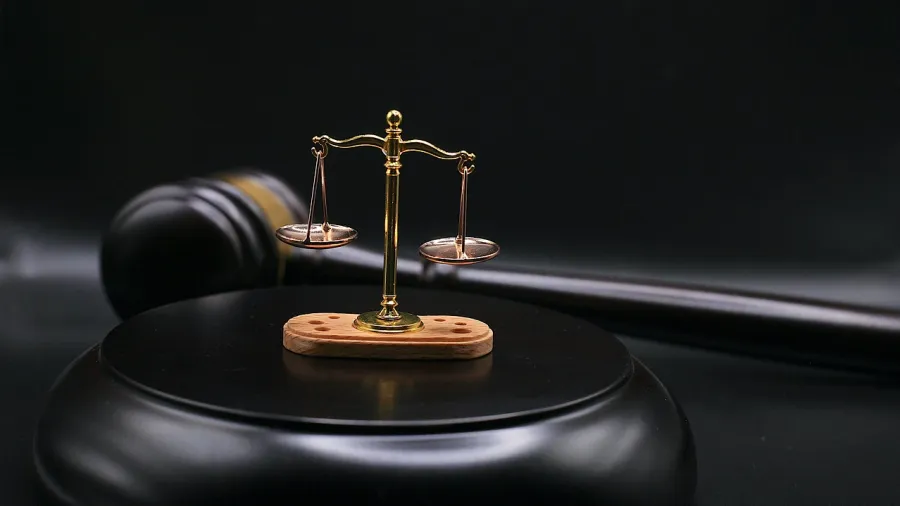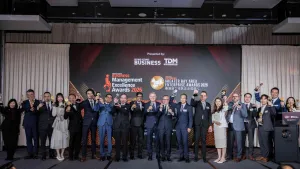
New arrangement eases IP suits between Mainland and Hong Kong
Firms in Hong Kong can now act against Mainland infringers without dual proceedings.
Intellectual Property (IP) owners can now sue infringers in Mainland China and enforce damages against a Hong Kong entity where their assets may be held, and vice versa. Unlike before, there is no need to initiate two separate proceedings because of an enhanced arrangement between the two jurisdictions.
Before the Mainland Judgments in Civil and Commercial Matters (Reciprocal Enforcement) Ordinance (MJREO/Cap. 645) was extended to include IP infringement disputes. “A claimant who successfully obtained a monetary judgment in Mainland China had to initiate separate debt proceedings against the Hong Kong entity to recover the judgment debt,” explained Kelley Loo, partner at Deacons Intellectual Property.
“It is not uncommon for Chinese infringers to move their assets to be held by a Hong Kong entity to avoid enforcement by mainland Chinese authorities, and use a Hong Kong entity to operate an infringing online store offering goods to consumers in the Mainland,” Loo told Hong Kong Business.
“In the circumstances, the arrangement would allow the brand owner to sue the Mainland infringer and Hong Kong entity in the Mainland, and then enforce the award in Hong Kong through simple registration, and vice versa.”
Registration of a mainland Chinese court judgment must be made in the Court of First Instance in Hong Kong.
To enforce a Hong Kong court judgment in mainland China, individuals “must secure a certified copy of the judgment and a certificate from the pertinent Hong Kong court, and then apply for registration with the Intermediate People’s Court located either in the residence of one of the parties or at the asset location of the judicial debtor,” Loo said.
“Detailed procedural requirements for registering judgments are set out in Practice Direction 38 of Hong Kong and the SPC Judicial Interpretation,” she added.
Citing another example where the arrangement may be helpful, Douglas Clark, a partner at Tanner de Witt Partner, said Hong Kong businesses used to have a hard time enforcing action against Mainland entities selling infringing products to the city as the infringement only occurs in Hong Kong.
“They could only sue them in Hong Kong but then there was no way to enforce a judgment obtained in Hong Kong in [the] Mainland,” Clark told Hong Kong Business.
Sharing more from experience, Clark said he had managed numerous cases involving the pursuit of Hong Kong companies whose owners were actually based in the Mainland.
“We haven’t really been able to do effective action in Hong Kong, because we couldn't get to the money, the money is with a person somewhere else,” Clark said, adding that such a scenario is common in the video game industry, where the equipment and peripherals are manufactured in the Mainland but sold through Hong Kong entities.
With the new arrangement in place, Clark is optimistic on achieving better outcomes for his clients, such as the toy company that encountered serious infringement in the Mainland. Clark said the profits of the infringing Mainland company were being channelled through a Hong Kong entity.
“They took a lot of action in China, but they couldn’t get through to the money in Hong Kong. We had to sue in Hong Kong, but it was quite difficult. Now, we will be able to just sue in Hong Kong on the basis that we have litigation going on in China,” he said. “We expect to get large damages. We want to enforce those damages, ultimately in Hong Kong, and we could freeze assets here [in Hong Kong].”
Expanded coverage
In addition to monetary judgments, businesses can also enforce judgments for non-monetary relief, as well as compensation or damages awarded in criminal proceedings.
The arrangement also provides businesses with “greater flexibility” in selecting the most suitable forum for pursuing their claims.
“Previously, the judgment creditor was required to show that the parties had agreed to submit to either the exclusive jurisdiction of the courts in mainland China or Hong Kong. Therefore, a party seeking to enforce a Hong Kong judgment in mainland China would have had to expressly agree to the Hong Kong courts having exclusive jurisdiction over the underlying dispute, and vice versa. In practice, this was often a barrier to enforcement,” Loo said.
Under the new arrangement, parties no longer need to specifically agree on jurisdiction; however, they must establish that the original court in Mainland China or Hong Kong has a jurisdictional connection to the proceedings through factors such as the location of the defendant, the place of contract performance, and other relevant criteria.
“This lower threshold should mean that a greater number of judgments will now be enforceable between the two jurisdictions. The simplified jurisdictional requirements will make it easier for Hong Kong judgment creditors to enforce against mainland Chinese assets and vice versa,” Loo said.
“For litigation involving parties with assets located in mainland China, and/or for those who are not so familiar with the litigation rules and procedure in the mainland, they may have the option to litigate in Hong Kong courts and enforce the judgments in the mainland without having to re-litigate the dispute in the mainland. This will be a significant saving in time and costs,” she said.
Exclusions
Whilst the arrangement is generally helpful for IP disputes, Clark told Hong Kong Business that it lacks patent coverage and enforceability of injunctions. Clark said the arrangement excludes utility models in Mainland China and short-term patents in Hong Kong.
Explaining the importance of including patent infringements, Clark noted that there are many shipments passing through Hong Kong that infringe patents. “You won’t be able to sue for patent infringement in Hong Kong, and then claim damages back in Mainland, China,” he said.
The arrangement also excludes final injunctions in IP infringement cases, with the exception of those involving trade secret infringements, said Loo. Additionally, under the arrangement, interim relief of any kind is also not enforceable.
“This is a serious weakness because in IP cases, often your major relief is actually the injunction and not damages that have been awarded,” Clark said.
Despite its weaknesses, Clark believes the arrangement will offer significant advantages, particularly for multinational companies, which will no longer need to initiate lawsuits in both jurisdictions.
“It introduced a new arrow to our bow, allowing us a new method which will be useful in cases,” Clark said.



















 Advertise
Advertise






